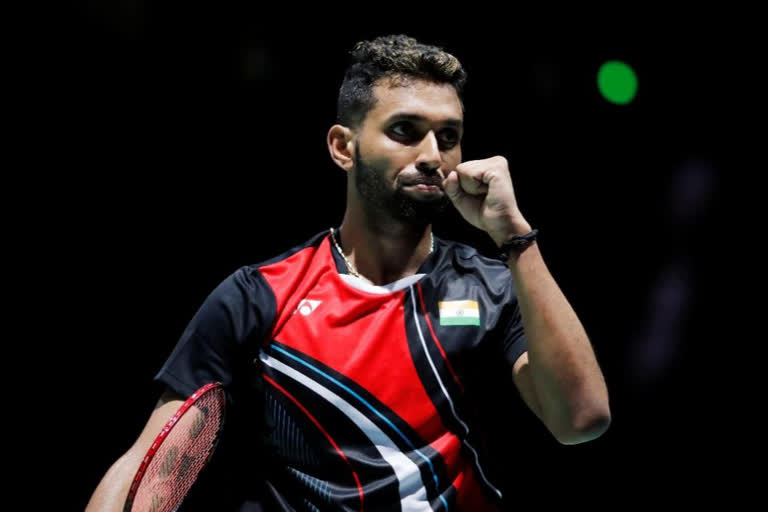Hyderabad: The "nightmare" that he endured while being confined in a Bangkok bio-bubble made ace shuttler HS Prannoy realise the importance of addressing the mental health concerns that sportspersons are facing in the post-COVID-19 world.
The international badminton restarted after a long COVID-19-induced break as players had to stay in a bio-bubble while competing in the Asian leg championship in Bangkok.
"It was totally new (situation) for us in Thailand, it was the first time we went to a bio-bubble. We didn't know anything that was going to happen," Prannoy said during a webinar.
"For two weeks, we couldn't go out of our (respective) rooms. We were only allowed to go for practice, go to the main hall and (walk up to the) bus. We were not allowed to walk outside the stadium."
Prannoy admitted that hard quarantine at times could be so lonely that one feels that he can no longer go out in the sun.
"After 3-4 days, you start feeling like that mentally. You feel that you can't go out in the sun. You just sit in the room for 22 hours, since we were only training for 2 hours. We cannot meet your teammates. It was a nightmare and after six days, it was taking its toll on me. I was not able to understand how to handle it as I faced for the first time."
Prannoy and Saina Nehwal -- both of whom had tested positive for COVID-19 last month -- had tested positive again for the infection on the eve of the Yonex Thailand Open and were forced to withdraw.
The duo were later cleared to participate after their "antibody IgG" was found positive.
"It was one of the most taxing days because from morning till night, we were in the hospital. There was no communication, we were told we have to be in quarantine for 10 days. Our entries were withdrawn but at the end of the day they said we were free to go," he said.
"Imagine, I am coming 9:30 at night from the hospital, next day I had a match and then in the morning, I am coming to know that the match was shifted tonight.
"In such junctures, you need someone to share all these things, because as a professional player, you just know how to play and don't know how to handle all these situations."
The 28-year-old from Kerala said a psychologist could have helped him to deal with it better and hoped there will be a structure in place to assist the players in the times to come.
"I wish I had someone to talk to so that I could be calmer before the match and focus on things because there is social media, tons of messages are coming because you are in bio bubble, all these things are big distractions. I think at this point psychologists come into play," he said.
"I hope in next five years, we have a structure in place where all the players get the services of a sports psychologist because you never know someone who is struggling with a ranking of 30-40 might just go to the top 10, because of certain changes in their schedule."
